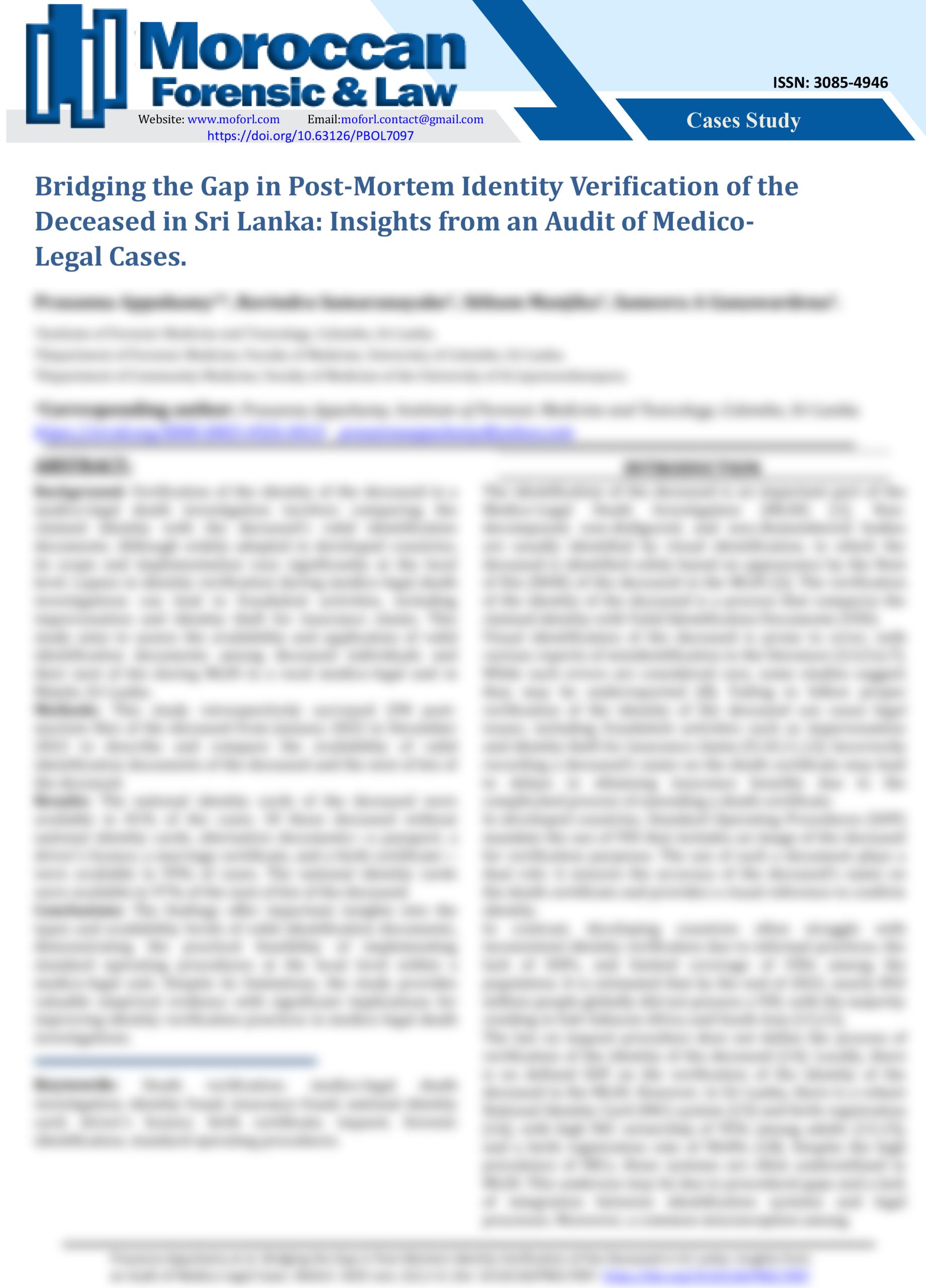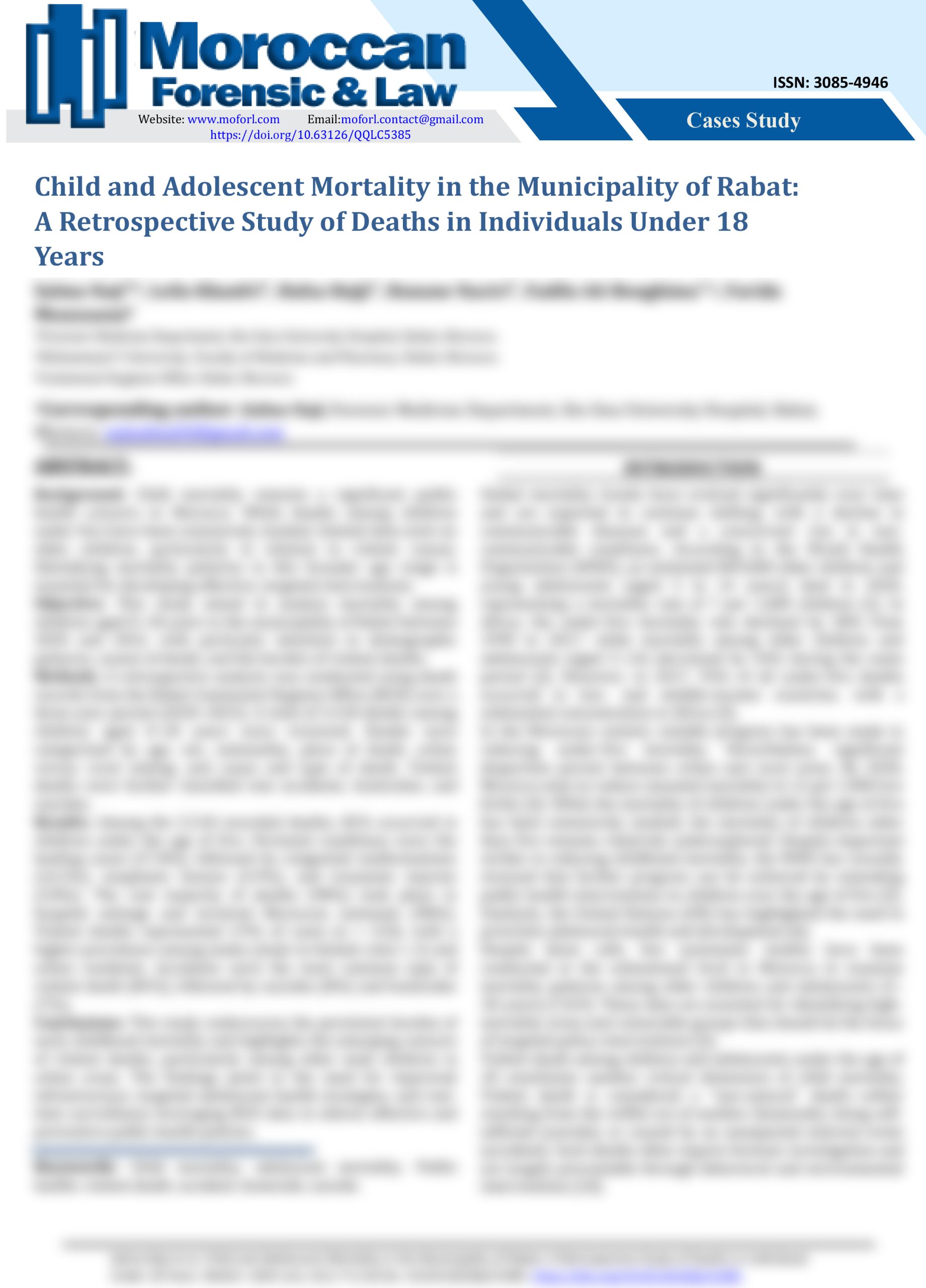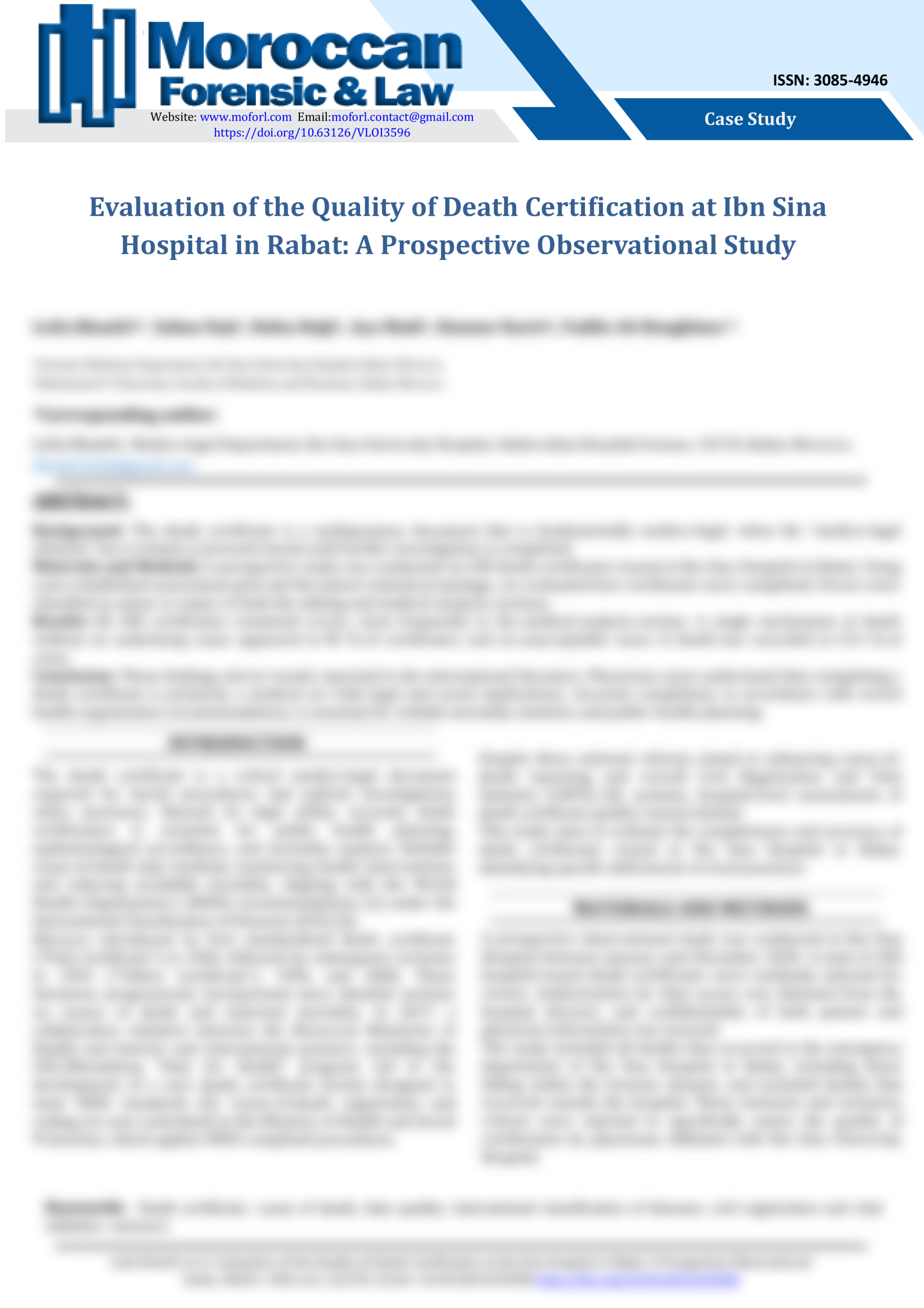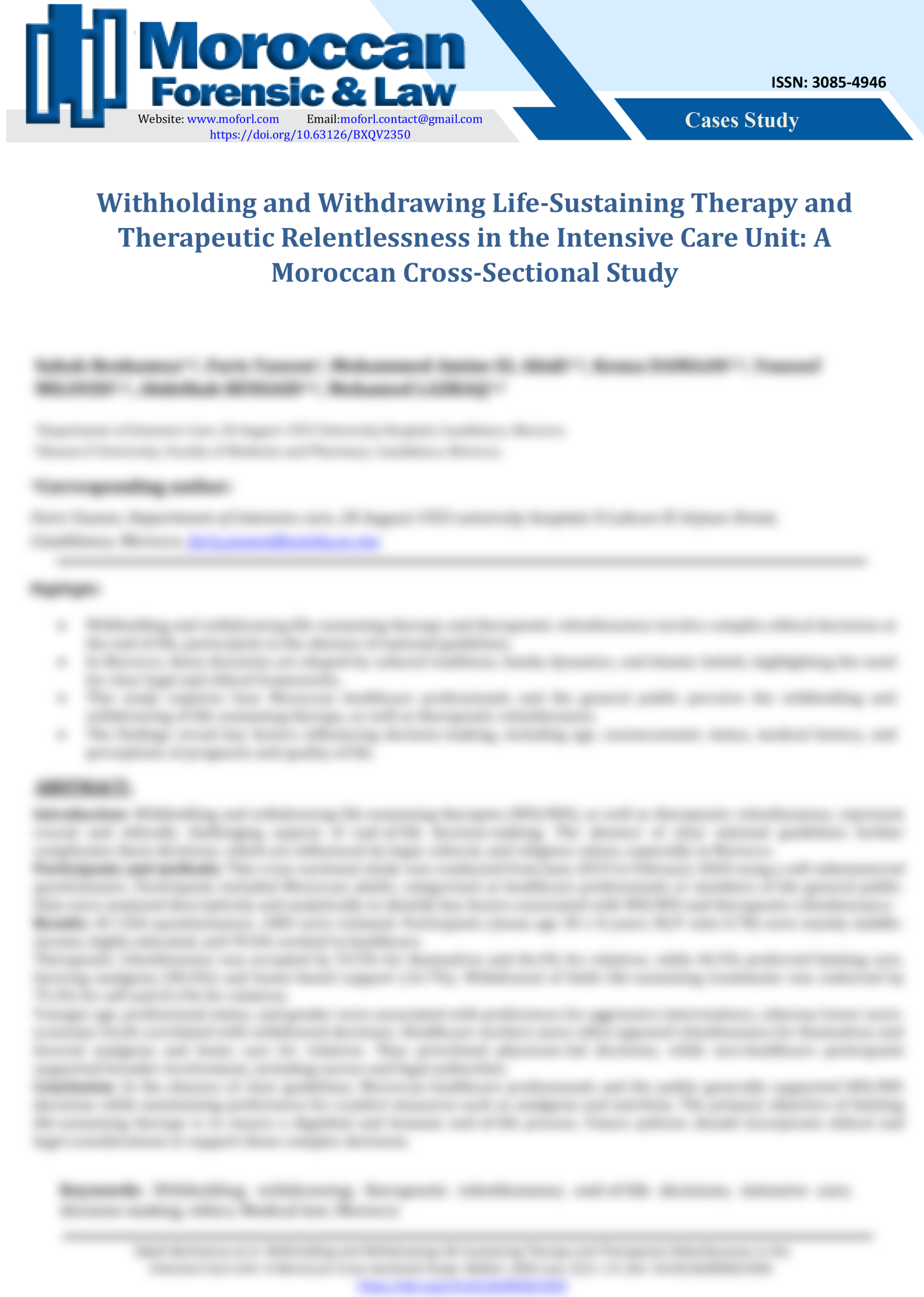Bridging the Gap in Post-Mortem Identity Verification of the Deceased in Sri Lanka: Insights from an Audit of Medico- Legal Cases

Bridging the Gap in Post-Mortem Identity Verification of the Deceased in Sri Lanka Insights from an Audit of Medico- Legal Cases moforl
Background: Verification of the identity of the deceased in a medico-legal death investigation involves comparing the claimed identity with the deceased’s valid identification documents. Although widely adopted in developed countries, its scope and implementation vary significantly at the local level. Lapses in identity verification during medico-legal death investigations can lead to fraudulent activities, including impersonation and identity theft for insurance claims. This study aims to assess the availability and application of valid identification documents among deceased individuals and their next of kin during MLDI in a rural medico-legal unit in Matale, Sri Lanka.
Methods: This study retrospectively surveyed 298 post-mortem files of the deceased from January 2022 to December 2022 to describe and compare the availability of valid identification documents of the deceased and the next of kin of the deceased.
Results: The national identity cards of the deceased were available in 81% of the cases. Of those deceased without national identity cards, alternative documents—a passport, a driver’s licence, a marriage certificate, and a birth certificate—were available in 99% of cases. The national identity cards were available to 97% of the next of kin of the deceased.
Conclusions: The findings offer important insights into the types and availability levels of valid identification documents, demonstrating the practical feasibility of implementing standard operating procedures at the local level within a medico-legal unit. Despite its limitations, the study provides valuable empirical evidence with significant implications for improving identity verification practices in medico-legal death investigations.



